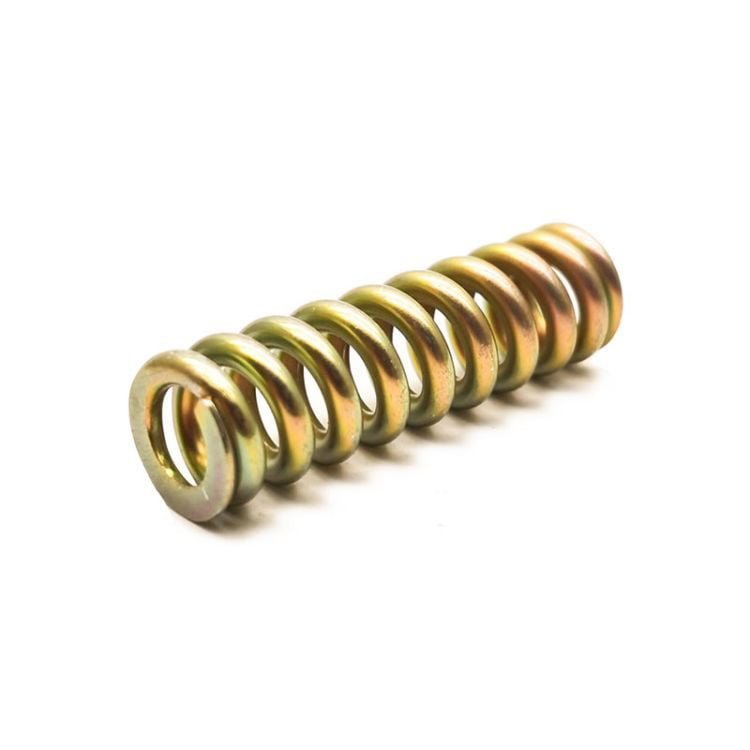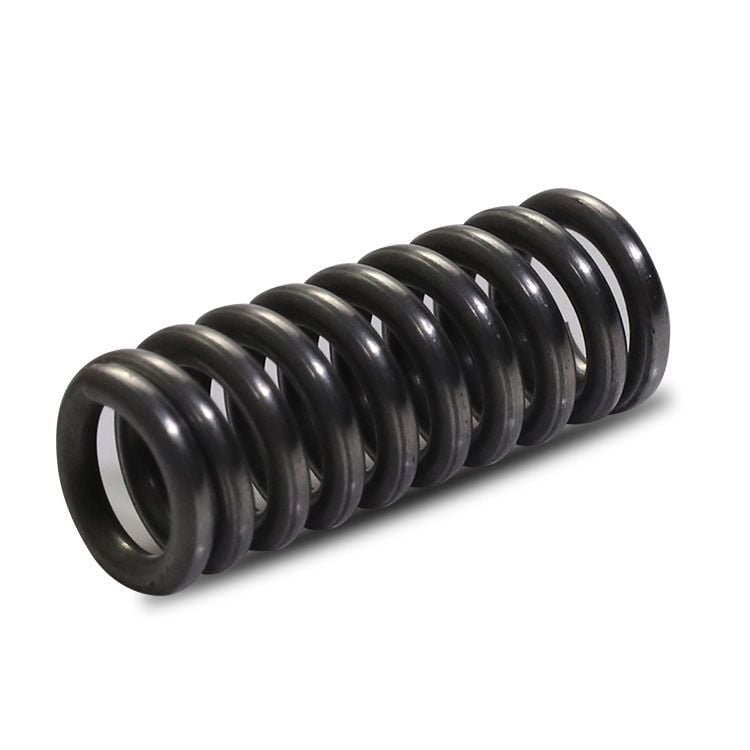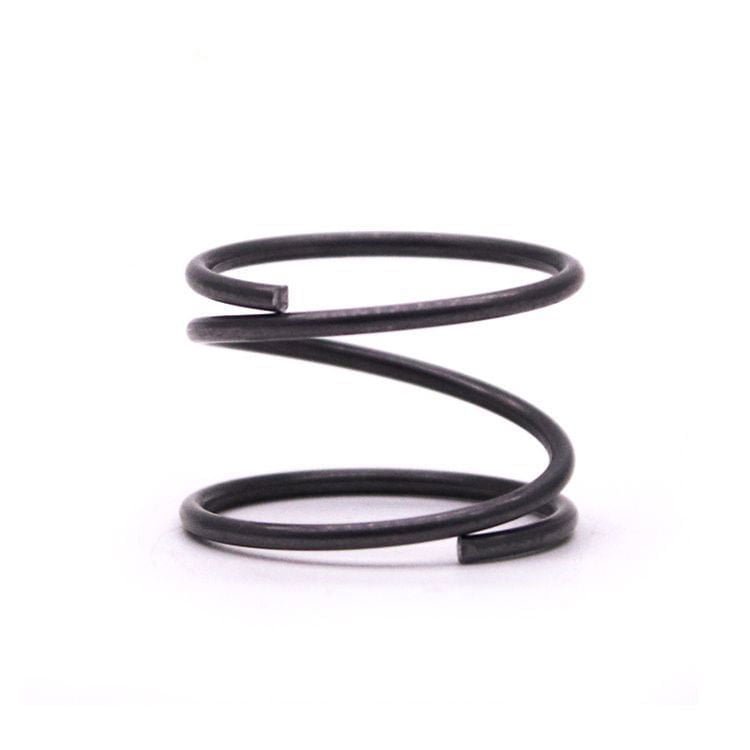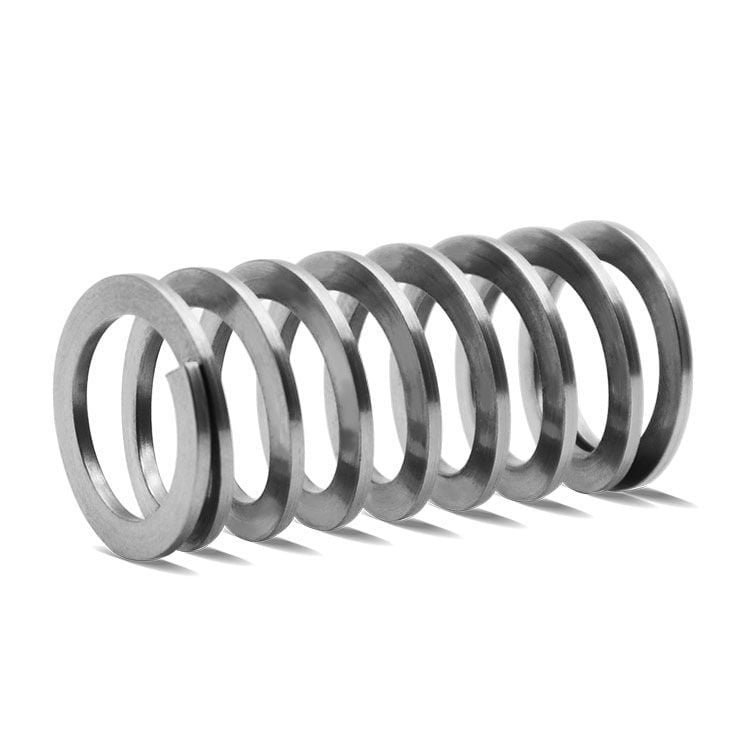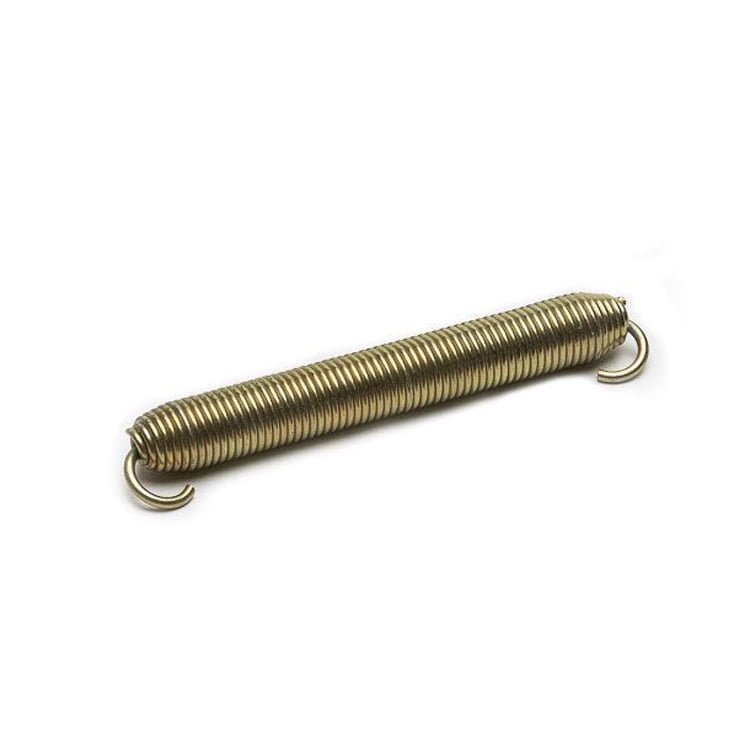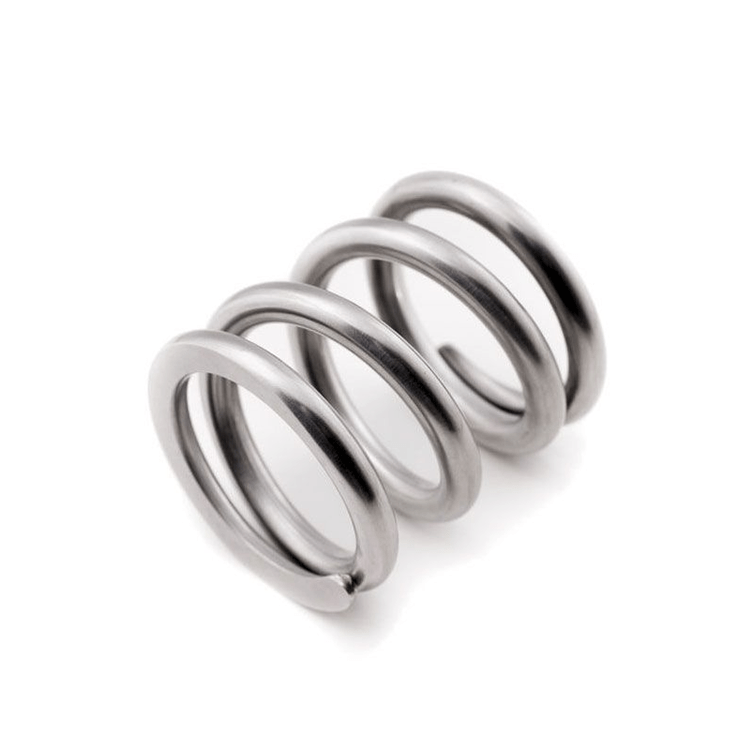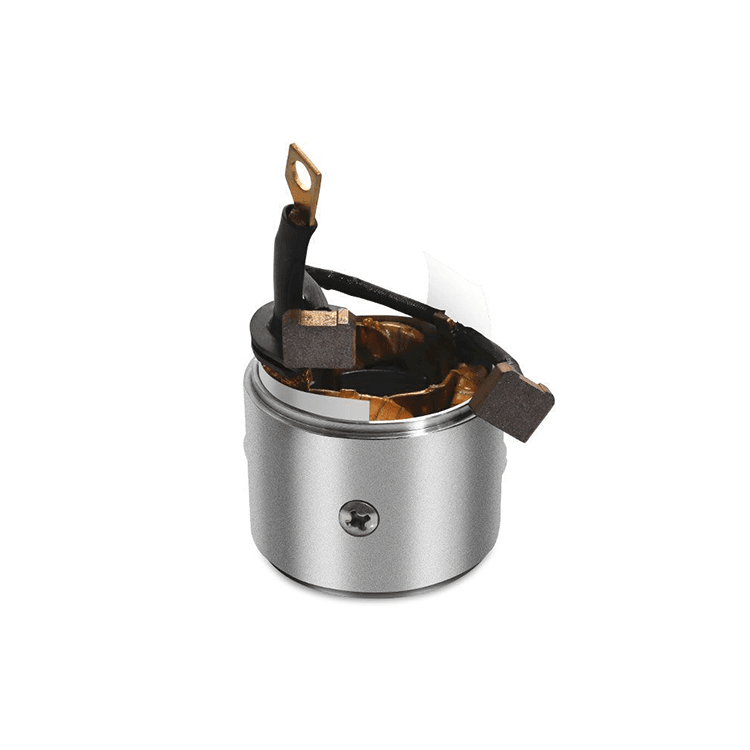Galvanized torsion springs
Galvanized torsion springs is a kind of torsion spring that has undergone galvanization treatment. Galvanization is a common metal surface treatment process. By coating a layer of zinc on the surface of the torsion spring, the following functions can be achieved:
- Anti-corrosion: Effectively protects the torsion spring from rusting and corrosion in damp and corrosive environments, prolonging its service life.
- Enhancing aesthetic appearance: Makes the surface of the torsion spring smoother, more uniform, and more attractive in appearance.
How to maintain galvanized torsion springs?
- Although the introduction of galvanized springs solved the greasiness problem, manufacturers encountered problems during the spring treatment process. They found that the galvanizing process weakened the metal springs. They discovered this because galvanized springs seemed to require much more adjustment than oil-tempered steel springs. This was because to adjust the springs, garage door technicians would add tension to the springs, which in turn shortened the service life of the galvanized springs.
- Therefore, you must maintain the galvanized springs, otherwise they may corrode. Besides, since the galvanized springs will gradually weaken after a few months, they must be tightened; otherwise, they will become loose and wear out. If they are weakened without maintenance, it may cause the springs to suddenly break and damage the garage door. Most importantly, manufacturers use a weaker metal than oil-tempered springs to make them, which may be the reason for their shorter service life.

The benefits of using galvanized torsion springs:
1. Attractive
Galvanized torsion springs are more attractive than oil-tempered springs because you can see the real silver steel.
2. Non-greasy
No oil is used in the production process of galvanized torsion springs, so there are no oily residues on the coils. This is in contrast to oil-quenched steel wires, whose oily nature sometimes rubs onto adjacent components.
3. Rust prevention
Due to galvanization, galvanized torsion springs are relatively less prone to corrosion. This is another advantage compared to oil-tempered springs, which rust over time. Additionally, unlike coated springs, the zinc protective layer of galvanized steel wire isolates it from moisture. Although oil-tempered springs are still popular, there are still benefits to galvanized torsion springs for those who choose to use them.
How to choose the appropriate spring
There are several main options for torsion springs, and it is one of the less restrictive choices in product design. When purchasing a torsion spring, the appearance and price of the spring may be the first things that come to mind. However, before deciding which type of spring to choose, it is best to consider the following factors:
Durability
If you are concerned about the service life of the spring, oil-tempered springs are the ideal choice.
Appearance
Aesthetics is a subjective issue, so judging which torsion spring is aesthetic depends on yourself. If you like the silver appearance of steel, you can consider galvanized torsion springs.
Tenacity
Rust is the enemy of steel, so rust resistance is an important quality of torsion springs. In this regard, galvanized torsion springs are superior to other springs. Oil-tempered springs sometimes rust, but galvanized springs rarely have this problem.
Maintenance
When choosing different types of torsion springs, people rarely consider future maintenance costs. If your budget is limited, this may cause problems. Because some types of springs require regular maintenance more easily than others. In short, galvanized steel wire springs may need to be readjusted once a year or every two years, while oil quenched springs rarely require any maintenance.
Cleanliness
Some people complain that when installing oil quenched springs, oily residues can accidentally stain nearby components. Although these problems are usually only caused by hasty installation, some people choose galvanized or coated steel wire springs simply because no oil is involved in the steel wire finishing process.
Budget
The amount you wish to spend on the torsion spring may also affect your choice. Compare the prices between oil-tempered springs, galvanized steel wire springs and coated torsion springs to determine the best option.
Galvanized torsion spring refers to coating a layer of zinc on the surface of an ordinary torsion spring through the electroplating process. This zinc layer can effectively prevent the torsion spring from corroding in harsh environments, thereby improving its use stability and durability.






